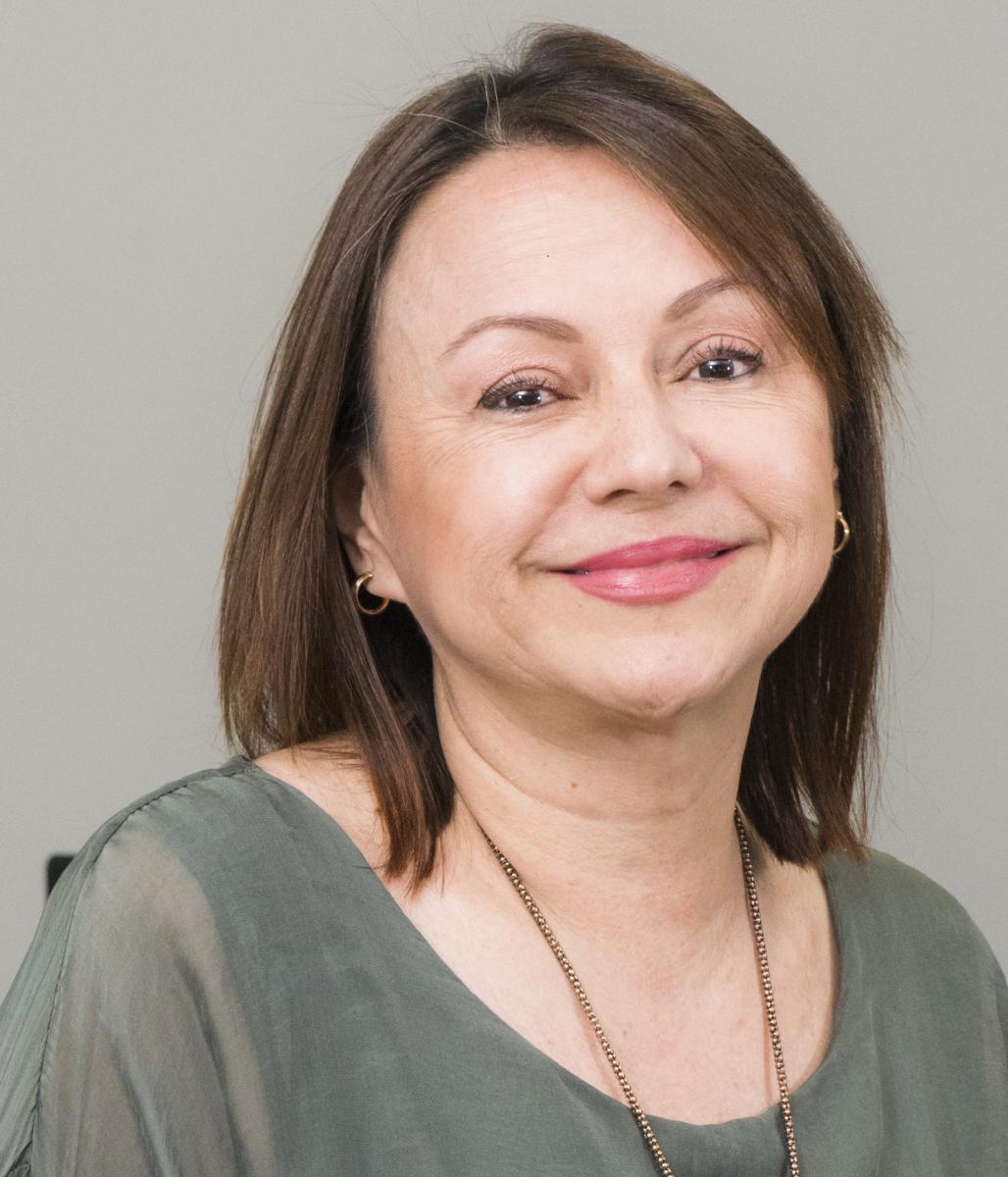
Women In Energy: Maria Nohemi Arboleda Arango
The Women in Energy series is a joint project between USEA and USAID that was developed out of USEA’s Engendering Utilities Partnership, a program funded by USAID to improve gender policies and gender outcomes at their respective organizations.

She is CEO of XM, operator of the Interconnected System and Power Exchange of Colombia. She is president of CIGRÉ Colombia (the International Council on Large Electric Systems). From her academic career, the main emphasis is that she is an Electrical Engineer from the Universidad Nacional de Colombia, with a master's degree and specialization in Electric Transmission and Distribution Engineering from the Universidad Pontificia Bolivariana in Medellín. María Nohemi, a connoisseur of the Colombian electricity sector, with more than 25 years of experience in planning and operating electrical power systems, energy planning and wholesale energy market transactions. Her long professional career, her human qualities, her values, her natural leadership and her technical knowledge manage to inspire the people with whom she works. She joined the company as a student in practice, later she joined the Planning Office, specifically in the Transmission Planning Section, that area for her was his main school since even now she declares himself with the "heart of a planner". After that, she worked in Energy Planning, in which she had the opportunity to approach planning from an integral point of view. Finally, she had the opportunity to know how the Wholesale Energy Market works thanks to his participation in the Operation and Market Management Department. She has contributed great knowledge to the company, occupying positions such as Director of Market Transactions, Director of Commercial Transactions and Director of Operational Planning at ISA. For more than 5 years she was the manager of the National Dispatch Center of XM and two years ago she was the first woman CEO of XM.
*Neither USEA nor USAID alters the substance of the responses from the women featured. The answers are their own.
Women In Energy Interview Questions
How have your education and career path led you to where you are now?
To me, electrical engineering is a giant world, a universe of knowledge I fell in love with and still love. This passion makes me work with enthusiasm and dedication and face adversity by learning from it. Fortunately, I work in a sector where changes are experienced permanently, and innovation is part of everyday life; a sector with ample opportunities for professional growth. I have made a career in the ISA business group, which I joined as an intern, holding various positions until reaching the one I currently occupy as the general manager of XM. My philosophy was always to give the best of me, regardless of the position I had. They have not only been individual achievements, I have also been lucky to find people who have supported me, who have contributed to my training and who have been the best teammates. The road travelled fills me with pride because I am increasingly convinced of the relevance of the work we do at XM to the country, the great commitment we have with the Colombians, and how fortunate I am to be able to play a part in the development of Colombia and a sector in which knowledge and cutting-edge technology are a constant theme. Every one of us is responsible to ourselves and society for contributing from our knowledge and experiences to transforming reality and making way for the new generations of talented professionals like many at XM. For all this, I firmly believe that fulfilling dreams is an act of will.
Over the course of your career, have you witnessed changes in the sector that have launched more women into leadership positions?
In recent years I have seen changes in the position of women in the workplace, not only in the electricity sector but also in the labor context of the country and the world. Currently, as revealed by Mercer in its When Women Thrive research, out of the total management positions in Colombia, 20 % are held by women, a figure that, although still low, shows a significant growth in the last 10 years. The presence of women in leadership positions has permeated the energy sector, a traditionally male-dominated industry; in this sense, one of the most relevant changes is the greater participation of women in the formulation of and decision-making on energy policies and the transformation of the sector. At present, women are part of the companies and institutions of the energy chain, fulfilling technical, specialized and leadership roles, which is also reflected in a clear tendency to bridge the gender wage gap. Moreover, global trends such as flexible hours, teleworking, mobility, and the increasingly strong involvement of ICTs allow greater integrality, work-life balance, and steady professional development.
Technology is transforming the traditional utility business model into a more modern interactive grid. Some utilities see the transformation as an opportunity to morph their teams as well because of a correlation between an increase in diversity and an increase in quality, and innovation. What, if anything is your organization doing to attract, retain, and promote more women into senior management positions to respond to the dramatic industry transformation?
The ISA group, of which XM is an affiliate, fully intends to attract, promote and retain the best talent by strengthening a culture in which innovation and diversity are visible in day-to-day management and the decisions we make. An example of this commitment is that two years ago I was appointed the general manager of XM, which is very relevant if we consider that, according to a recent study by the firm KPMG (Revista Dinero, January 3, 2018), of the total number of women working in Colombia, only 7 % occupy a senior management position. In addition, 70 % of XM’s expanded management committee is made up of female talent, something very rare in the sector. 75 % of management positions offered in the last year have been filled by women after a rigorous selection process. XM is a company open to gender equity and whose reality distorts false beliefs of relating the energy sector to a predominantly male-dominated field. In fact, there are more and more women enrolled in technical programs such as electrical engineering whose talent, and not their status as women, make them worthy of holding positions of great responsibility.
In this regard, I am very pleased to see the growing awareness and appreciation of the complementarity of skills between genders and their positive impact on collective performance. This is lived daily at XM, a highly technical company with a large technological component, which makes it a very good example of a condition that we want to continue radiating within our stakeholders to promote a culture of gender equity.
Are talented women within your organization making it to top leadership positions? Why/why not?
Of the total leadership positions of the company, 53 % are occupied by female staff, out of which a large percentage has made a career within the organization. XM has performance management programs that allow us to observe good individual results and detect key talent. Additionally, we have a leadership program through which we strengthen skills in the staff to advance in the construction of the adaptive, transformative, model leadership style we promote. At XM, it is the integrality of technical and human competencies that makes men or women worthy of occupying positions of great responsibility, as it actually happens. To me, true inclusion and equity means respecting the conditions of everyone, in terms of gender, sexual condition, ethnic group or religious belief. All this ensures the complementarity of skills, perspectives and approaches, not only creating value for the company, but also comprehensively building the future of the sector.
Companies that embrace diversity outperform their competitors. What type of diversity programs does your organization have in place to mentor future women leaders? How does your organization measure and report gender diversity? Is the data publicly available?
Our selection process is open to diversity. Proof of this is that our calls are available in portals and social media seeking to reach all audiences, with profile criteria that accommodate all types of professionals. XM is permanently visited by university students who want to see the National Dispatch Center and understand what we do in the sector. They can spend time with professionals from all areas coming from different regions of the country and see the contribution of women in key positions such as the operation of the National Interconnected System and the Energy Market Management. In addition, 67 % of apprentices and interns that the company currently has are women.
We are also working on how to increasingly strengthen social inclusion, not only focusing on gender balance but also including other minorities (individuals with disabilities or different sexual orientation or from other ethnic groups and nationalities), which allows us to build and innovate from interdisciplinarity and diversity of approach. Information about the structure of our human team and its share by gender is published annually in our sustainable management report, which is available to all at http://informesanuales.xm.com.co/SitePages/Default.aspx
What actions should the energy and electricity sector be focused on to accelerate change, increase diversity, and foster a better gender balance in the boardroom?
Some of the actions that I believe contribute to fostering a balance in boards are:
- Promoting from the industry the enrollment in programs related to the energy and electricity sector, approaching educational institutions and, especially, groups of young women.
- Making working conditions more flexible and taking advantage of new technologies to make participation in the sector more attractive to new generations.
- Supporting the training and development of talents through scholarships, exchanges, mentoring or internships to strengthen their leadership and be an example for new generations.

